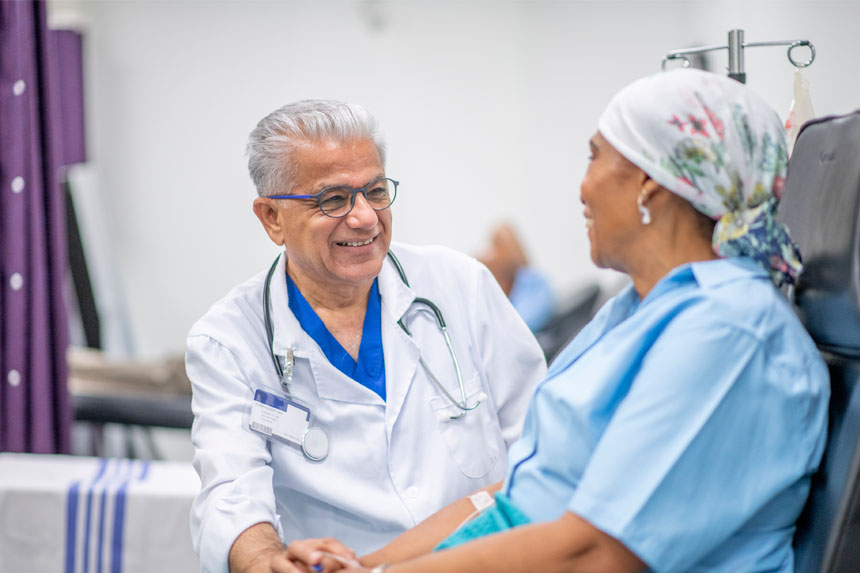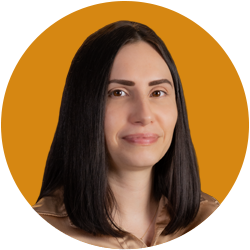Key opinion leaders (KOLs) in oncology are more than just experts—they're influential voices who steer the course of research, clinical practice, and patient care, shaping the future of new therapies. With over 26,000 healthcare professionals specializing in oncology in the U.S. alone, finding the right KOLs can be a complex task. However, these KOLs play a crucial role in determining the success of life science companies by influencing market adoption of new therapies and devices.
How to identify the right oncology KOLs
Given the sheer number of professionals in the field, engaging with the right KOLs requires a strategic approach. It’s not just about finding prominent names—it involves selecting those whose expertise and influence align with your company’s goals. Partnering with the right oncology KOLs can drive success across all stages, from product development to market penetration, and ultimately helps ensure that effective oncology treatments reach the patients who need them.
Let’s explore the key metrics and methods to find the most relevant oncology KOLs with the ideal combination of influence and expertise.
Scientific publications
One key metric for spotting oncology KOLs is their publication record. Researchers with a lot of highly cited publications in reputable journals often stand out as major voices in their field. By looking at how often they publish, the impact factor of the journals they’re in, and how many times their work is cited, you can gauge the influence and relevance of their work. Specialized databases can help you dig into these details, making it easier to find experts whose research aligns with your focus area, whether it’s CAR-T cell therapy, checkpoint inhibitors, tumor genomics, or another specialized field in oncology.
Clinical trials
Another important factor to consider is a KOL’s involvement in oncology clinical trials. KOLs who lead or participate in high-profile clinical trials are often at the forefront of emerging therapeutic developments. Tracking oncology clinical trials through registries and databases can reveal which researchers are testing new treatments or exploring innovative approaches. For example, a researcher spearheading a multi-center trial on a novel anti-cancer drug could be a key figure to engage with for insights into trial design.
Conference presentations
Presentations at major medical conferences are also a vital indicator of an oncology KOL’s standing in the field. High-profile conferences such as the American Society of Clinical Oncology (ASCO), the European Society for Medical Oncology (ESMO), and the American Association for Cancer Research (AACR) attract top-tier experts who present cutting-edge research and emerging trends in oncology. Keeping an eye on these conferences for speakers and session chairs can help you spot the key players in the field.
Grant funding
Grants and funding received are another great way to gauge a KOL’s impact. High-value grants and awards from prestigious institutions or government bodies often indicate a high level of recognition and credibility. Researchers who secure significant funding are typically engaged in innovative and impactful work, making them important KOLs to consider. Resources like the National Institutes of Health (NIH) RePORTER can help you track this funding and find the leading researchers and experts in oncology.
Claims data
Claims data, which reveal the volume of patients treated by a physician or facility, can also serve as an indicator of influence. Researchers or clinicians who handle a large cancer patient population are likely to have a lot of practical experience and can offer valuable insights into how new cancer treatments work in the real world. Analyzing claims data can help find those diagnosing and treating oncology patients and whose clinical work is shaping patient care.
Social media and news presence
Social media and news presence are increasingly relevant metrics for identifying KOLs and oncology DOLs. Platforms such as Twitter and LinkedIn allow KOLs to share their insights, research updates, and professional opinions. Tracking their activity on these platforms can give you a sense of their current interests and influence within the field. Plus, news articles and media coverage featuring these experts can offer clues about their recent contributions and public impact.
Honorary positions and affiliations
Honorary positions and affiliations provide further context for a KOL’s influence. Experts holding prestigious positions such as chair roles in academic departments, advisory roles in government agencies, or leadership roles in cancer centers or industry-sponsored research programs often have significant sway in their field. These affiliations are indicative of their established reputation and influence within oncology. Understanding the type of affiliation—whether academic, government, or industry—can also help you find the most relevant KOLs for your specific needs.
Using expert databases
Scientific and medical databases can be invaluable to finding and connecting with the right oncology KOLs using these metrics. For example, platforms like Definitive Healthcare’s Monocl Expert Suite provide comprehensive profiles that aggregate data on publications, clinical trials, industry affiliations, and more for over 15 million scientific and clinical experts. These databases offer a consolidated view of an expert’s contributions and influence, making it easier to pinpoint the right oncology KOLs to support your medical affairs goals.
Leveraging KOLs in your medical affairs strategy
Once you’ve built relationships with KOLs, there are numerous ways to harness their expertise for your company’s benefit. For instance, including oncology KOLs in advisory boards can offer critical insights into product development and clinical trial design. Partnering with them on publications, presentations, or educational materials can boost your brand’s visibility in the space. Additionally, involving KOLs in patient education initiatives can strengthen your brand’s reputation and build trust within the medical community.
Discover oncology KOLs using expert data
In a nutshell, finding and working with the right oncology experts takes a well-rounded approach. You’ll need to look at publications, clinical trial involvement, industry affiliations, conference presentations, claims data, social media presence, and more to fully understand their influence. Using expert databases can help you find the right experts faster and with greater precision in the fast-changing world of oncology.
If you’re ready to find your next oncology key opinion leader, book a demo with our team to see how Monocl Expert Suite can help you identify and strategically engage with scientific and clinical experts from around the world.


